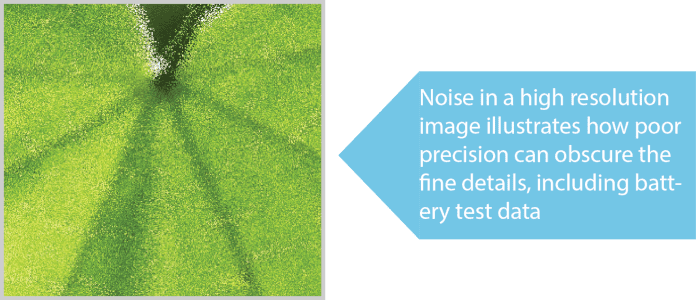精度 determines the level of noise/fluctuation present in the test equipment’s measurement. Precision also indicates the consistency and repeatability of the instrument’s measurement circuitry. A measurement with very little noise/fluctuation is considered to be precise. Measurement precision at “100ppm” indicates it will vary by no more than 0.01% (100/1,000,000).

Many instruments will not specify their precision, which is a warning sign, or will improperly report precision though multiple averaged calculations or very slow frequency data logging that hides the noise. Another common tactic is to report precision of battery coulombic efficiency calculations instead of hardware specification. These practices are misleading and reflect negatively on the company’s reputation. [Ask to learn more.]
测试设备的分辨率、材料的质量和热管理都对提供卓越的精度起着重要作用。 精度应直接指定测试设备的电压、电流、时间,有时还有温度测量。
将此转化为测试结果...
Arbin定义的测量精度为 电压, 当前,以及 时间 为每一类测试设备。 这些是测试设备所测量的三个参数,定义了它的性能。 石英计时晶体用于测量和时间戳;代表了这种测量的最先进的方法。
近十年来,学术界一直在广泛讨论电池研究中高精度测量的好处。 库仑效率和差分容量是两个已经被证明需要难以置信的高精度测试设备才能有意义并得出有把握的结论的指标。如果用低精度的测试设备进行实验,这些分析技术可能会错过或掩盖数据中的特征,而这些设备会产生噪音和不一致(不可重复)的结果。

(1) 决议 | (2) 精度 | (3) 温度 | (4) 稳健性 | (5) 准确度 | (6) 软件


